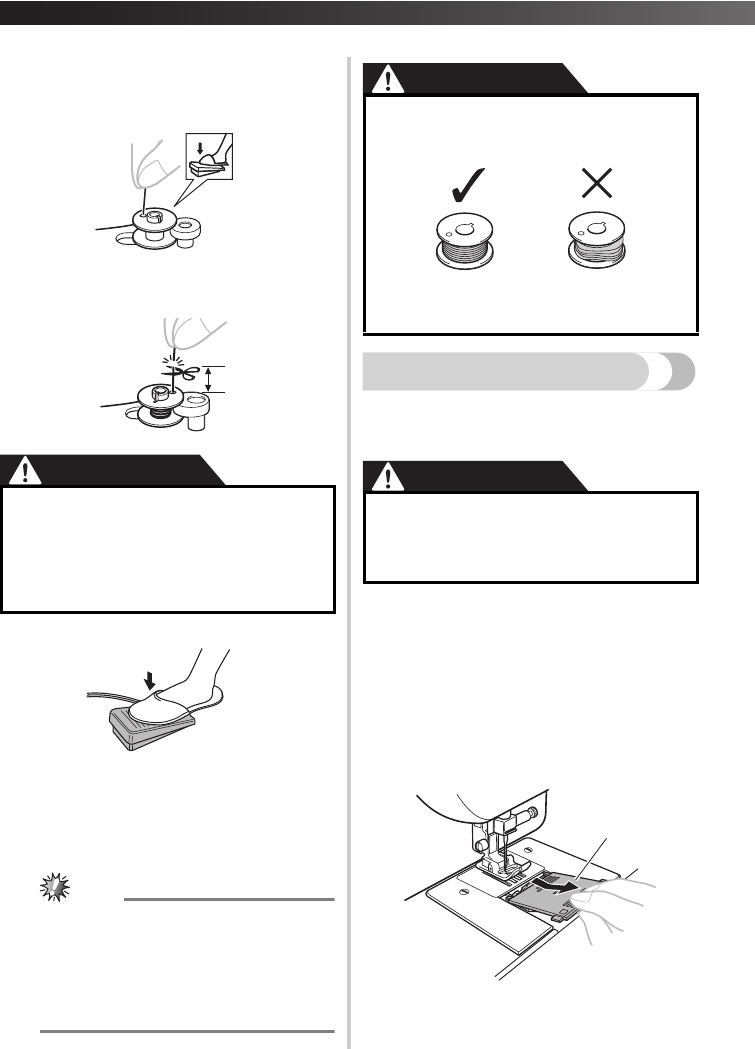
KNOWING YOUR SEWING MACHINE ————————————————————————————————————————————————————————————————————————————————————————————————————————————————————————————————
—
————————————————————————————————————————————————
—————
15
6
While holding the end of the thread,
gently press the foot controller to wind
the thread around the bobbin a few times.
Then stop the machine.
7
Trim the excess thread above the bobbin.
• Leave 1 cm (1/2 inch) of thread from the hole
on the bobbin.
1 1 cm (1/2 inch)
CAUTION
8
Press the foot controller to start.
9
When the bobbin seems full and begins
spinning slowly, take your foot off the foot
controller.
0
Cut the thread, slide the bobbin winder
shaft to the left and remove the bobbin.
Note
● When the sewing machine is started or the
handwheel is turned after winding the
thread around the bobbin, the machine will
make a clicking sound; this is not a
malfunction.
● The needle bar does not move when you
slide the bobbin winder shaft to the right.
CAUTION
Lower threading
Install the bobbin wound with thread.
• For more details on using the quick-set
bobbin, see page 16.
CAUTION
1
Prepare the bobbin wound properly
before threading the lower thread.
• See page 13 for the details about bobbin
winding.
2
Raise the needle by turning the
handwheel toward you
(counterclockwise) and raise the presser
foot lever.
3
Remove the bobbin cover by sliding it and
lift toward you.
1 Bobbin cover
● Make sure you follow the instructions
carefully. If you do not cut the excess
thread completely before winding the
bobbin, when the thread runs low it may
tangle around the bobbin and cause the
needle to break.
1
● Not winding the bobbin properly may
cause the thread tension to loosen, and
may break the needle.
1 Wound evenly
2 Wound poorly
● Make sure you turn off the machine
while threading. If you accidentally step
on the foot controller and the machine
starts to sew, you could be injured.
1
2
1


















